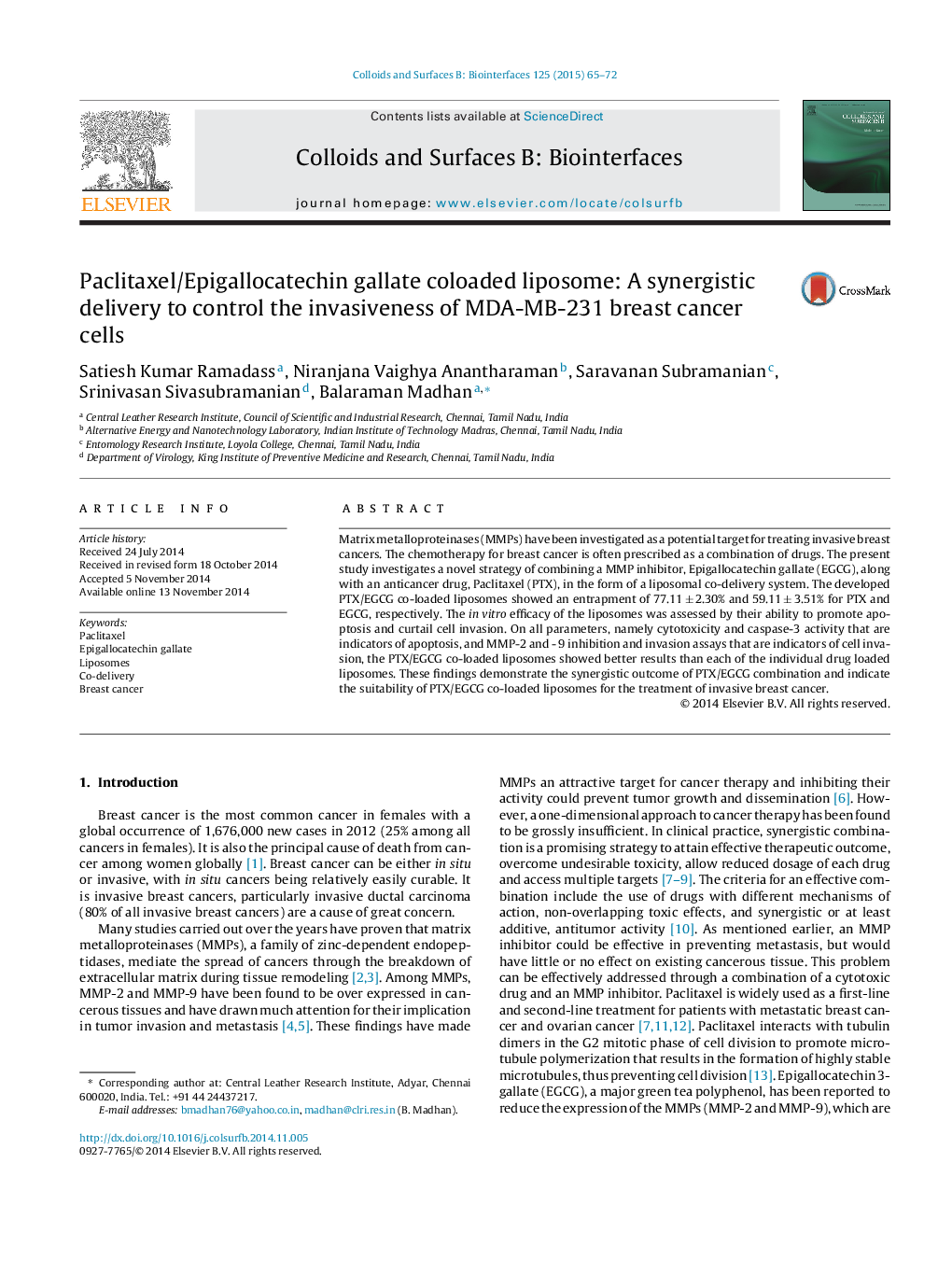| Article ID | Journal | Published Year | Pages | File Type |
|---|---|---|---|---|
| 599568 | Colloids and Surfaces B: Biointerfaces | 2015 | 8 Pages |
•Development of PTX/EGCG co-loaded liposomes for treating invasive breast cancer.•PTX/EGCG co-loaded liposomes induce synergistic apoptosis in breast cancer cells.•PTX/EGCG co-loaded liposomes showed significant reduction in MMP-2 and -9 activity.
Matrix metalloproteinases (MMPs) have been investigated as a potential target for treating invasive breast cancers. The chemotherapy for breast cancer is often prescribed as a combination of drugs. The present study investigates a novel strategy of combining a MMP inhibitor, Epigallocatechin gallate (EGCG), along with an anticancer drug, Paclitaxel (PTX), in the form of a liposomal co-delivery system. The developed PTX/EGCG co-loaded liposomes showed an entrapment of 77.11 ± 2.30% and 59.11 ± 3.51% for PTX and EGCG, respectively. The in vitro efficacy of the liposomes was assessed by their ability to promote apoptosis and curtail cell invasion. On all parameters, namely cytotoxicity and caspase-3 activity that are indicators of apoptosis, and MMP-2 and - 9 inhibition and invasion assays that are indicators of cell invasion, the PTX/EGCG co-loaded liposomes showed better results than each of the individual drug loaded liposomes. These findings demonstrate the synergistic outcome of PTX/EGCG combination and indicate the suitability of PTX/EGCG co-loaded liposomes for the treatment of invasive breast cancer.
Graphical abstractFigure optionsDownload full-size imageDownload as PowerPoint slide
